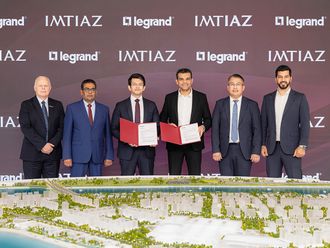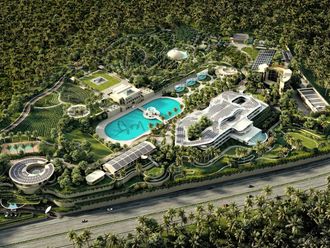Sam Zell, the property moghul who made billions in 2007 when he sold his Equity Office Properties (EOP) portfolio to Blackstone for $38 billion, recently shortlisted the top three property investment destinations - Brazil, China and (surprise!) Egypt.
After years of state-built housing, in the early 1990s, the Egyptian government allowed private housing projects. Soon, there was oversupply, developers went bankrupt, and from 1997 on there was a property crisis. Now the market is booming again.
House prices are rising strongly in Egypt. There are three key areas in Egypt - Cairo, Hurghada and Sharm Al Shaikh. Most appreciation has been in the new developments, such as New Cairo and in the new Red Sea projects.
Why Egypt?
For one, it is a tourism superstar. Traffic doubled between 2001 and 2006 and Egypt forecasts 13 million visitors in 2008, 19 per cent more than in 2007. Tourism and investment has been boosted by the free float of the Egyptian Pound in 2003, which suddenly made Egypt and Egyptian property much more affordable and popular. A benefit of tourism is that property investment for short-term rentals is a very viable proposition.
The incredibly low prices are another plus at an average of Dh220 per square foot. For prime residential property in a major city, comparable Middle East prices are Dh2,438 per square foot in the UAE, Dh760 in Lebanon, Dh536 in Morocco and Dh393 in Jordan. A new three-bedroom villa in New Cairo can cost Dh600,000. One-bedroom beachfront apartments in the resorts of Hurghada and Sharm Al Shaikh go for average Dh150,000 and Dh260,000 respectively.
In 2001, the mortgage law was passed and this has ignited the mortgage market as banks can now repossess properties and evict defaulting owners. This has been positive for the property market.
Indicators
Impressive economic growth has helped and Prime Minister Ahmad Naseef and his team of technocrats have slashed tariffs, taxes, modified investment rules and helped to push GDP growth from below four per cent to above seven per cent. Exports have more than doubled and inflation has come down from 11.40 per cent in 2005 to 4.4 per cent in 2006. Egypt benefits from investment from the Gulf, as it is seen as less risky than Lebanon or Jordan and is also a fast-developing business process outsourcing centre. Unemployment has fallen and shortages of skilled labour have rapidly boosted white-collar wages.
Foreigners have the option of registering their property. If registered, the limit is two units, not to exceed 4,000 square metres and the purpose must be for a family member to live in. The property cannot be sold or rented for the first five years. If unregistered, there is no limit on sale or lease but you can be subject to cap gains tax. One way around these restrictions is the 'signature validity court verdict'. This avoids formal registration, and allows resale of the property immediately. It is essential to apply for and get Egyptian residency in order to own property. Except for Sharm Al Shaikh, where only 99-year leases are available, all properties can be bought freehold. Be warned of the complex ownership and registration process .
There is minimal capital gains tax. Round-trip transaction costs are around 10.9 per cent to 12.3 per cent. New tenants do not enjoy rent protection. Though they don't have the right to remain in the apartment at the expiry of the contract, eviction can take forever so it is preferable to rent to foreigners, who are less likely to overstay.
The upsides are strong and several. But the downsides are highlighted in an incisive Economist piece dated September 2008. The government is widely seen as corrupt and unpopular. Fuelled by an unreliable judiciary, poor state schools, and a growing gap between rich and poor (44 per cent of Egyptians are poor or extremely poor), there is rising resentment. This plus rising hardline feelings makes for a potentially unstable country. Also, Egypt is too dependent on tourism and may be affected by the global financial crisis. Safety is also a concern with several terrorist attacks on tourists.
But I keep thinking of the prices - just where else in the world can you snap up a new beachfront apartment in a world class resort for Dh250,000?
Binod Shankar is a Chartered Accountant and aproperty analyst. This article does not constitute investment advice.











